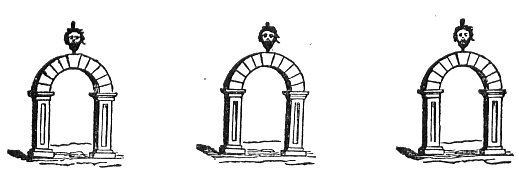Fathers and mothers slay their children, to have the burial-fees, that with the price of one child’s life they may continue life in those that survive. Little girls with bare feet sweep the street-crossings, when the winter wind pinches them, and beg piteously for pennies of those who wear warm furs. Children grow up in squalid misery and brutal ignorance; want compels virgin and wife to prostitute themselves; women starve and freeze, and lean up against the walls of workhouses, like bundles of foul rags, all night long, and night after night, when the cold rain falls, and there chances to be no room for them within; and hundreds of families are crowded into a single building, rife with horrors and teeming
p. 180
with foul air and pestilence; where men, women and children huddle together in their filth; all ages and all colors sleeping in-discriminately together; while, in a great, free, Republican State, in the full vigor of its youth and strength, one person in every seventeen is a pauper receiving charity.
How to deal with this apparently inevitable evil and mortal disease is by far the most important of all social problems. What is to be done with pauperism and over-supply of labor? How is the life of any country to last, when brutality and drunken semi-barbarism vote, and hold offices in their gift, and by fit representatives of themselves control a government? How, if not wisdom and authority, but turbulence and low vice are to exalt to senatorships miscreants reeking with the odors and pollution of the hell, the prize-ring, the brothel, and the stock-exchange, where gambling is legalized and rascality is laudable?
Masonry will do all in its power, by direct exertion and co-operation, to improve and inform as well as to protect the people; to better their physical condition, relieve their miseries, supply their wants, and minister to their necessities. Let every Mason in this good work do all that may be in his power.
For it is true now, as it always was and always will be, that to be free is the same thing as to be pious, to be wise, to be temperate and just, to be frugal and abstinent, and to be magnanimous and brave; and to be the opposite of all these is the same as to be a slave. And it usually happens, by the appointment, and, as it were, retributive justice of the Deity, that that people which cannot govern themselves, and moderate their passions, but crouch under the slavery of their lusts and vices, are delivered up to the sway of those whom they abhor, and made to submit to an involuntary servitude.
And it is also sanctioned by the dictates of justice and by the constitution of Nature, that he who, from the imbecility or derangement of his intellect, is incapable of governing himself, should, like a minor, be committed to the government of another.
Above all things let us never forget that mankind constitutes one great brotherhood; all born to encounter suffering and sorrow, and therefore bound to sympathize with each other.
For no tower of Pride was ever yet high enough to lift its possessor above the trials and fears and frailities of humanity. No human hand ever built the wall, nor ever shall, that will keep out
p. 181
affliction, pain, and infirmity. Sickness and sorrow, trouble and death, are dispensations that level everything. They know none, high nor low. The chief wants of life, the great and grave necessities of the human soul, give exemption to none. They make all poor, all weak. They put supplication in the mouth of every human being, as truly as in that of the meanest beggar.
But the principle of misery is not an evil principle. We err, and the consequences teach us wisdom. All elements, all the laws of things around us, minister to this end; and through the paths of painful error and mistake, it is the design of Providence to lead us to truth and happiness. If erring only taught us to err; if mistakes confirmed us in imprudence; if the miseries caused by vicious indulgence had a natural tendency to make us more abject slaves of vice, then suffering would be wholly evil. But, on the contrary, all tends and is designed to produce amendment and improvement. Suffering is the discipline of virtue; of that which is infinitely better than happiness, and yet embraces in itself all essential happiness. It nourishes, invigorates, and perfects it. Virtue is the prize of the severely-contested race and hard-fought battle; and it is worth all the fatigue and wounds of the conflict. Man should go forth with a brave and strong heart, to battle with calamity. He is to master it, and not let it become his master. He is not to forsake the post of trial and of peril; but to stand firmly in his lot, until the great word of Providence shall bid him fly, or bid him sink. With resolution and courage the Mason is to do the work which it is appointed for him to do, looking through the dark cloud of human calamity, to the end that rises high and bright before him. The lot of sorrow is great and sublime. None suffer forever, nor for nought, nor without purpose. It is the ordinance of God’s wisdom, and of His Infinite Love, to procure for us infinite happiness and glory.

Moe is the founder of GnosticWarrior.com. He is a father, husband, author, martial arts black belt, and an expert in Gnosticism, the occult, and esotericism.






